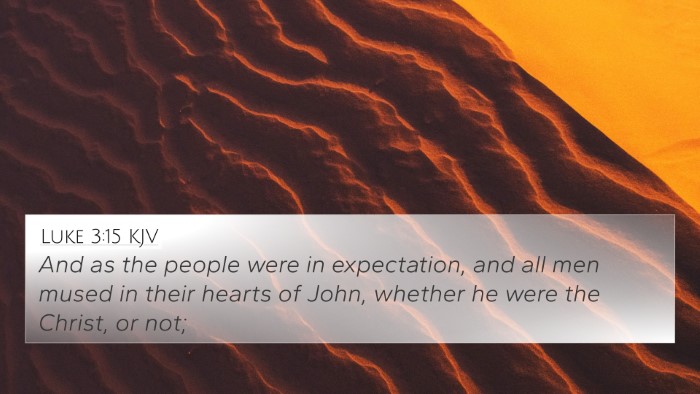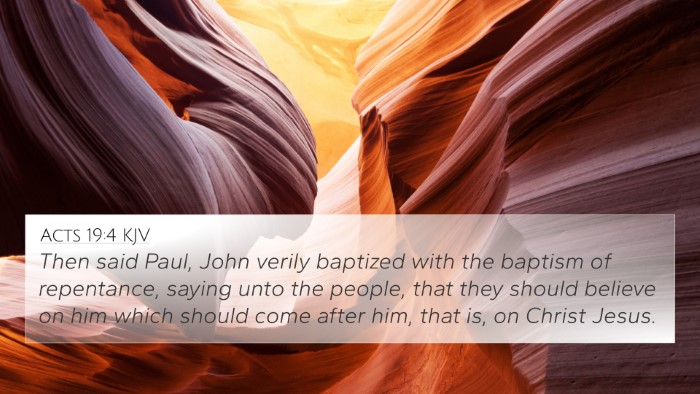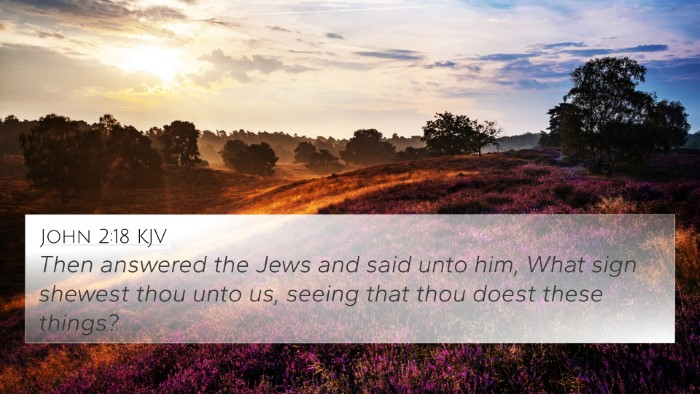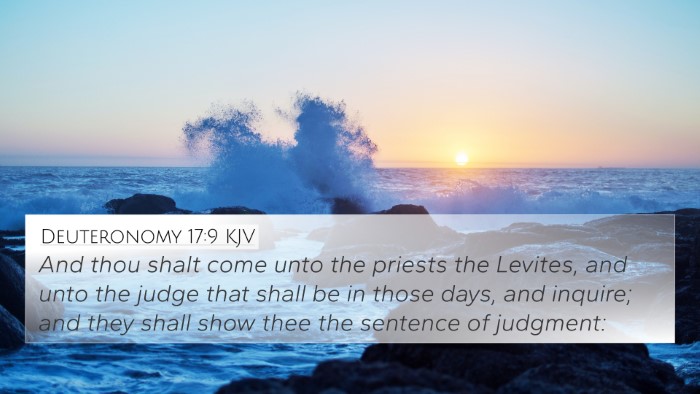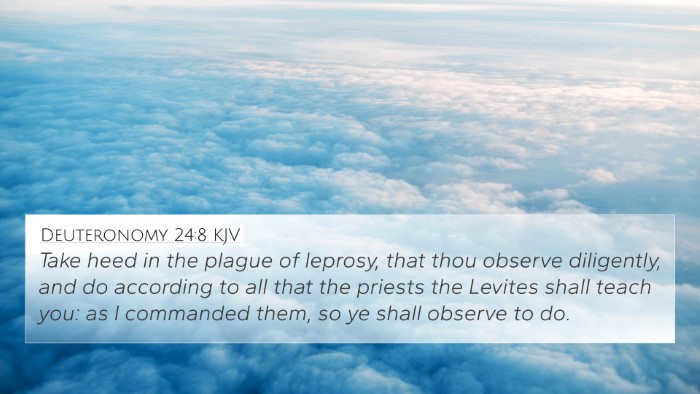Understanding John 1:19
John 1:19 provides a pivotal moment in the New Testament, presenting the testimony of John the Baptist regarding his role and identity. The verse states, "And this is the record of John, when the Jews sent priests and Levites from Jerusalem to ask him, Who art thou?" This inquiry leads to significant themes regarding recognition, identity, and the prophetic role of John.
Exegesis and Commentary Insights
Examining John 1:19 through the lenses of various public domain commentaries reveals a complex understanding of John's role and the nature of his testimony.
Matthew Henry's Commentary
Matthew Henry emphasizes that John the Baptist's testimony is crucial in framing the mission of Jesus Christ. He notes that the inquiry by the priests and Levites illustrates the seriousness of the Jewish leadership in understanding who John is, given that he could potentially lead many astray with his strong message of repentance. This points to the broader theme of divine authority and the recognition of God’s chosen messengers.
Albert Barnes' Notes
Albert Barnes provides insights into the significance of the Jewish delegation sent to John. He highlights that their question, "Who art thou?" signifies a deeper desire to discern John's authority and legitimacy as a prophet. Barnes argues that John's response would lay the groundwork for recognizing Jesus as the Messiah.
Adam Clarke's Commentary
Adam Clarke's interpretations delve into the implications of John's ministry against the backdrop of Jewish expectations for the Messiah. Clarke notes that the inquiry illustrates the uncertainty within the religious community regarding prophetic authenticity and points to the tension between established religious authorities and new prophetic voices.
Key Themes and Connections with Other Scriptures
John 1:19 serves as a nexus for several themes including the identification of prophets, the call for repentance, and the preparation for the coming of Christ. Below are key cross-references that illuminate these themes:
- Isaiah 40:3: A voice cries in the wilderness; prepare the way of the Lord.
- Malachi 3:1: Behold, I send my messenger, and he will prepare the way before me.
- Matthew 3:3: For this is he who was spoken of by the prophet Isaiah.
- Mark 1:3: The voice of one crying in the wilderness; prepare the way of the Lord.
- Luke 3:4-6: Quoting Isaiah, discussing the role of John in the plan of God.
- John 3:28: John acknowledges his role as the forerunner of Christ.
- Acts 19:4: Paul recounts the ministry of John the Baptist.
Thematic Bible Verse Connections
The narrative surrounding John the Baptist and the inquiry from Jewish leaders creates a thread that connects to overarching biblical themes:
- Recognition of Prophetic Authority: John 1:19 speaks to the challenge of recognizing and accepting God's messengers throughout Scripture.
- Fulfillment of Prophecy: The role of John as a prophet fulfills numerous Old Testament predictions, echoing the linkage between the Old and New Testament.
- Preparation for the Messiah: John’s ministry is a unique precursor, signifying repentance and the coming of a transformative figure in Jesus Christ.
Cross-Referencing Biblical Texts
Tools for understanding John 1:19 include cross-referencing techniques that will help readers find connections between Bible verses. Comprehensive Bible cross-reference materials, such as software or strong concordances, can aid in the study of this pivotal text and create pathways of thematic exploration.
How to Use Bible Cross-References
To effectively engage with the concepts presented in John 1:19, consider:
- Identifying similar themes in the Old and New Testament, especially concerning prophetic roles.
- Exploring the methods of cross-referencing verses related to John's message of repentance.
- Employing inter-Biblical dialogue to enhance understanding of John's impact on early Christian thought.
Conclusion
John 1:19 is not merely a question of identity but serves as a significant point of connection within the scriptures. By examining John’s role and recognizing the broader scriptural context, we can gain richer insights into the continuity of God's redemptive plan through the ages.
To further explore these themes, consider looking into similar Bible verses and utilizing a structured approach to comparative Bible verse analysis. This enriches your understanding and provides a deeper appreciation for the interconnectedness of scriptural teachings.



